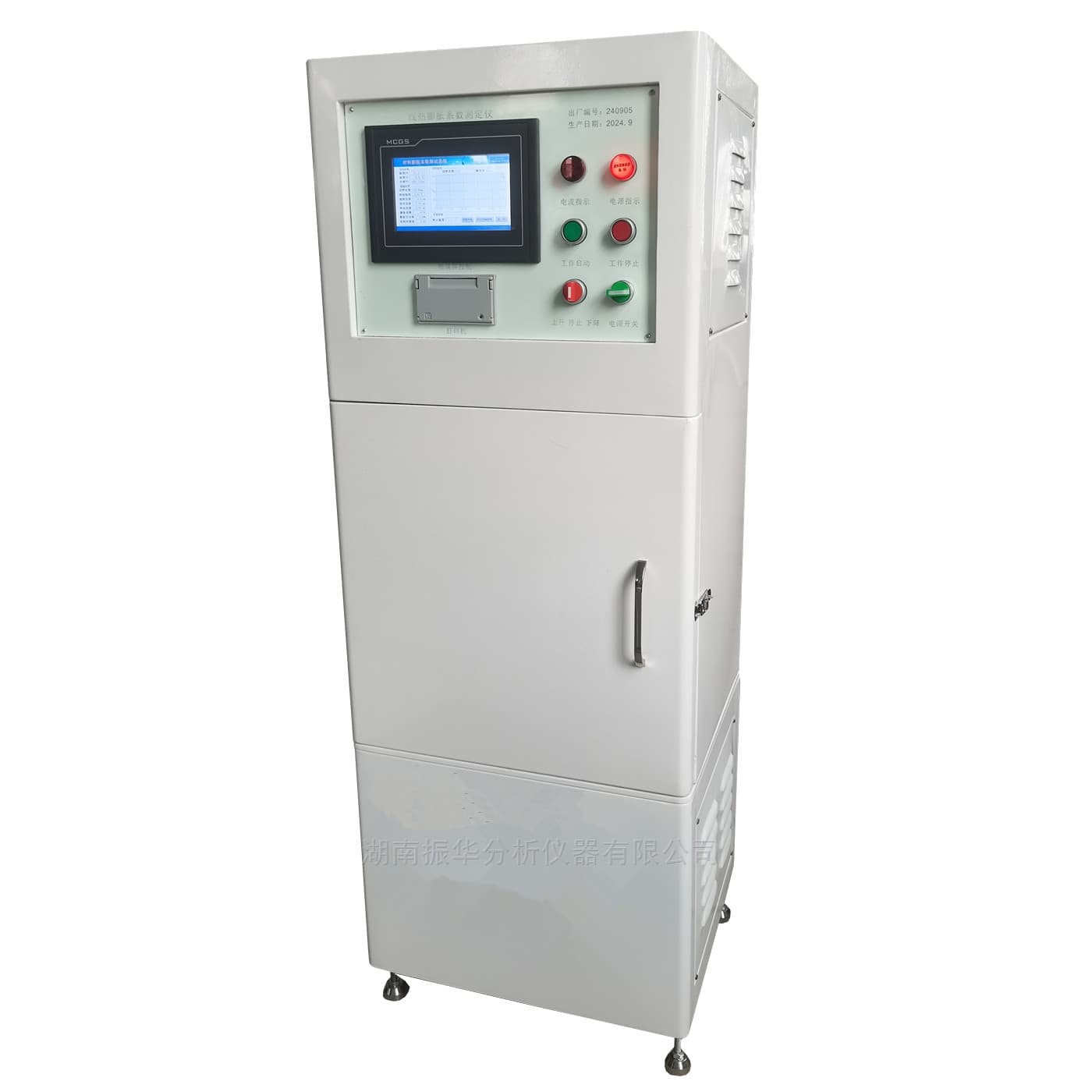
Non-metallic Materials Vertical Coefficient of Thermal Expansion Tester
Published: 1/22/2025
The PZY-III-10/14/17 is designed to test the coefficient of thermal expansion of non-metallic materials such as graphite, ceramics, rubber, and plastics at specified temperatures. It features a vertical design that facilitates testing of large sample materials and offers digital or pointer displacement display options.
Product Description
The PZY-III-10/14/17 Non-metallic Materials Vertical Coefficient of Thermal Expansion Tester uses computer technology and intelligent instruments (microcontroller) to monitor and control physical quantities such as displacement and temperature throughout the entire experiment process. It supports offline operation and online automatic testing, running in a Chinese Windows environment with a user-friendly Chinese interface; manual testing is available in offline mode. This instrument is mainly suitable for determining the linear thermal expansion coefficient of pharmaceutical glass ampoules, complying with the 2015 edition of the National Pharmaceutical Packaging Material Standard average linear thermal expansion coefficient method (YBB00202003-2015). It can also test the expansion and contraction of aluminum alloys, non-metallic materials, graphite carbon materials, ceramics, rubber, plastics, and other composite materials in a molten state, as well as measure the coefficient of thermal expansion. Equipped with a protective gas interface, the sample preparation method complies with GB/T32158-2015 and GB/T3074.4 standards. The vertical design is aesthetically pleasing, practical, reliable, and convenient for sample loading. Product features include an industrial-grade color touchscreen with microcomputer control, clear visuals, sensitive touch, and ease of operation. The test process is intelligently controlled, with displacement and temperature monitored throughout the experiment. The instrument offers selectable vertical single or double pushrod types for convenient sample loading. It has strong compatibility with samples, capable of measuring the coefficient of thermal expansion for glass rods, tubes, plates, and finished products. Software processes data to automatically calculate the linear expansion coefficient and obtain expansion rate curves. The testing system automatically analyzes and calculates the expansion coefficient and linear expansion amount. The system displays and records temperature-expansion coefficient curves, all raw data, and calculates the linear expansion coefficient. It supports test data recording, storage, and viewing, and is equipped with a micro printer for direct output and printing of test results. Multi-level user permission management with password login facilitates user management. The instrument includes a built-in air cooling device that quickly cools the furnace body after the experiment, enabling rapid preparation for the next test and greatly improving testing efficiency.
Technical Specifications
| Parameter | Specification |
|---|---|
| Details | 1. Maximum furnace temperature: -200-100℃, 1000℃, 1400℃, 1600℃ selectable by customer. 2. Heating rate: 0.1 to 20 K/min adjustable; conventional rate controlled below 5 K/min; special requirements customizable. Experimental process control parameters include PID parameters and online communication methods. 3. Expansion measurement range and error: ±5 mm ±0.1%. 4. Temperature control accuracy: ±1℃; temperature recording error ≤ ±0.5%; different temperatures use different heating elements and control methods; low temperature uses liquid nitrogen cooling or other cooling sources. 5. Expansion measurement resolution: 0.1 μm. 6. Sample size: length up to 50 mm (max), diameter 20–50 mm (max); specifications customizable by user. 7. Test atmosphere: vacuum (10-1 mbar), static, dynamic; inert or reactive gases; vacuum requirements customizable. 8. Sample state: solid, powder (with test mold). 9. Sample holders: quartz, alumina, etc. (selected according to temperature requirements). 10. Suitable for precise determination of expansion or contraction of large test materials during heat treatment, applicable to ceramics, graphite, building materials, glass, refractory materials, metals, or alloys. Capable of completing research on thermal expansion coefficient, softening temperature, glass transition temperature, phase transition, density changes, and sintering rate control (RCS). |
Contact Us for Pricing
Interested in this product? Reach out for a personalized quote or more information. Our team will respond within 24 hours.
Send us a Message
Contact Information
- Phone
- Office
- Fax
- Address
B6-101, Zhongnan High-Tech Intelligent Manufacturing Industrial Park, No. 10 Shuangma Street, Yuetang District, Xiangtan City, Hunan Province, China
 Scan to connect on WeChat
Scan to connect on WeChat